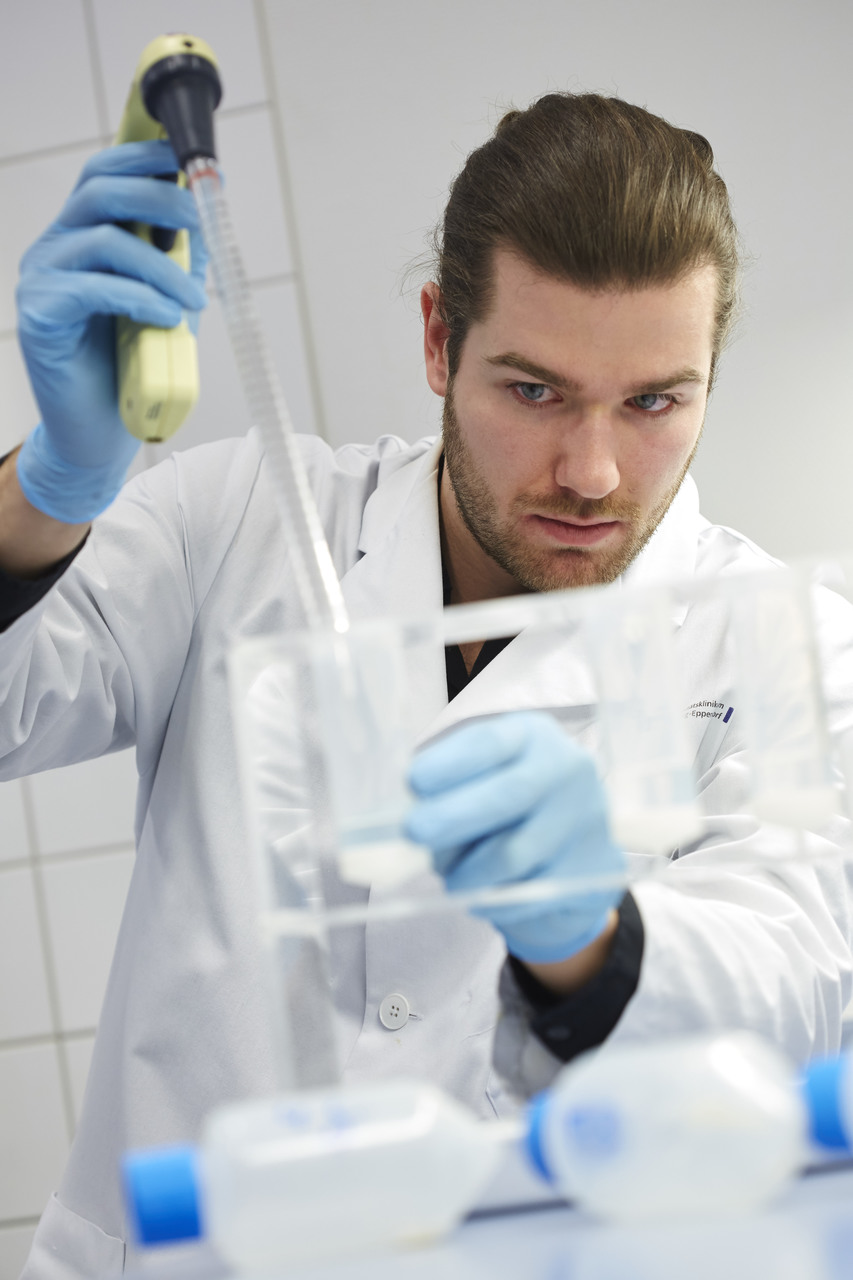Focus on Translation
Research Strategy - Focus on Translation
In the laboratories of basic researchers, important discoveries are made about what happens at the molecular level during the development of cardiovascular diseases: How do cells and tissues react, which messenger substances are involved in disease development, which genes are altered?
The process of turning these findings into a therapy is called translation and involves many other research steps. These are often very time-consuming, expensive and the science can seem less ‘ground breaking’ as a tested idea is finessed. Nevertheless, these steps are very important and there are no new therapies without them.
The DZHK has therefore agreed on a joint research strategy to focus on specific steps of the translation process. These steps are considered to be very challenging and are rarely dealt with:
- Late Preclinical Studies (see: Translational Research Projects)
- Early Clinical Trials (see: Clinical studies)
- Guideline-relevant studies (see: Clinical studies)
Research Focus - Reducing Cardiovascular Diseases
With our research we want to prevent heart attacks. The key to this is the plaques that form in the blood vessel walls of the heart muscle arteries. When the plaques break open, blood platelets accumulate, clogging the blood vessels. If these two processes can be stopped, the heart attack would not occur in the first place.
Even when someone survives a heart attack, this often results in heart failure. Today, doctors can sometimes stop or delay the progression of heart failure, but they cannot make a weak heart strong again. DZHK researchers are therefore looking for ways to regenerate the heart, for example by replacing the diseased heart tissue with heart cells grown in the laboratory.
Congenital heart defects and heart failure are the most frequent causes of sudden cardiac death but the underlying processes can be very different. Researchers want to find out how this tragic phenomenon occurs in detail, who is particularly at risk and how sudden cardiac death can be prevented.
Abnormal heart rhythms can significantly affect a person’s quality of life, and in the case of atrial fibrillation, they can be fatal if they cause blood clots in the heart that can lead to a stroke. DZHK researchers want to improve diagnostics and are looking for options for patients who do not respond to current treatments.
In addition, the DZHK will investigate how people can protect themselves against cardiovascular diseases or prevent their progression. DZHK researchers, including psychologists, sports scientists and nutrition experts, are therefore jointly planning extensive studies on the prevention of cardiovascular diseases.

